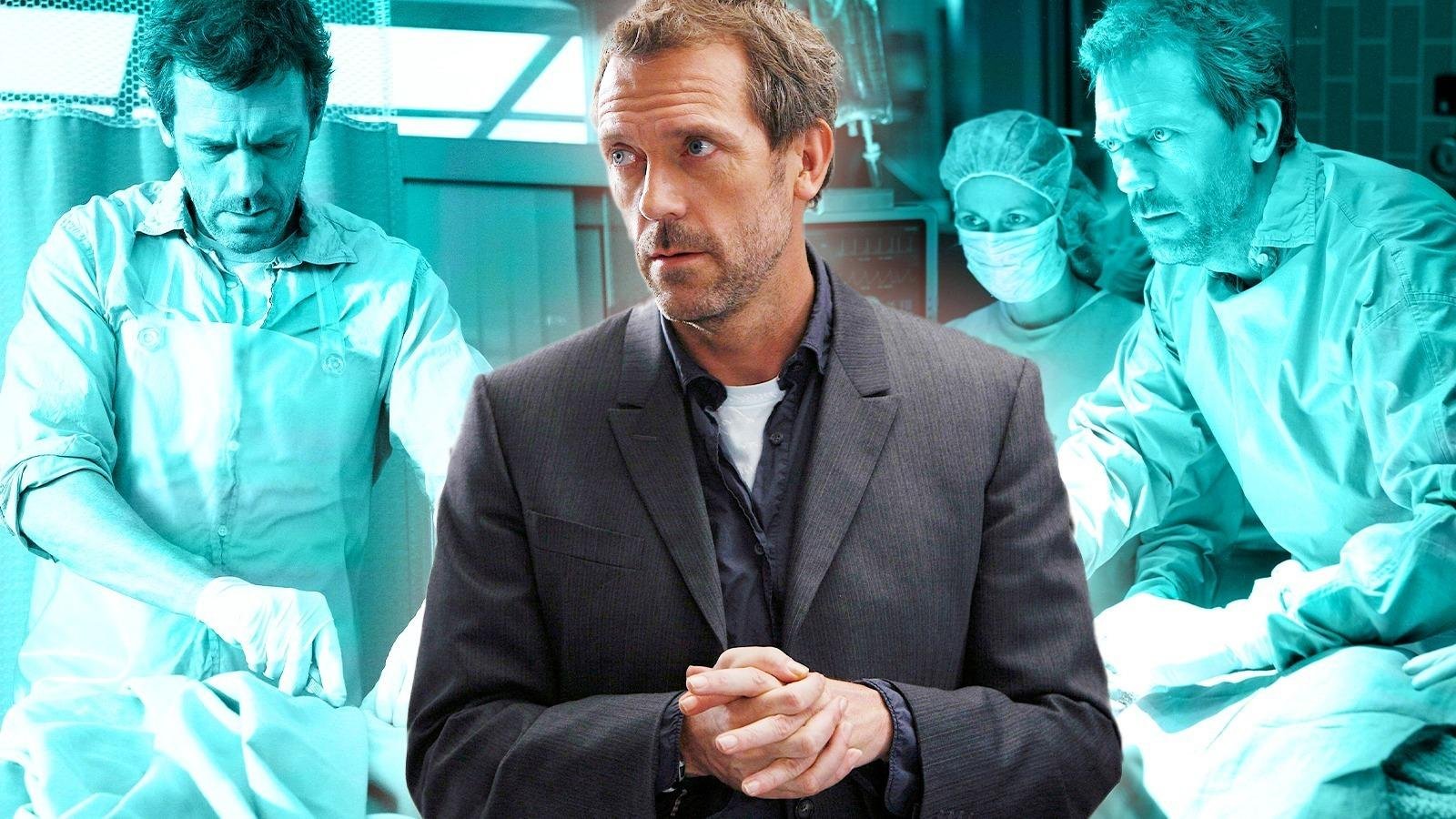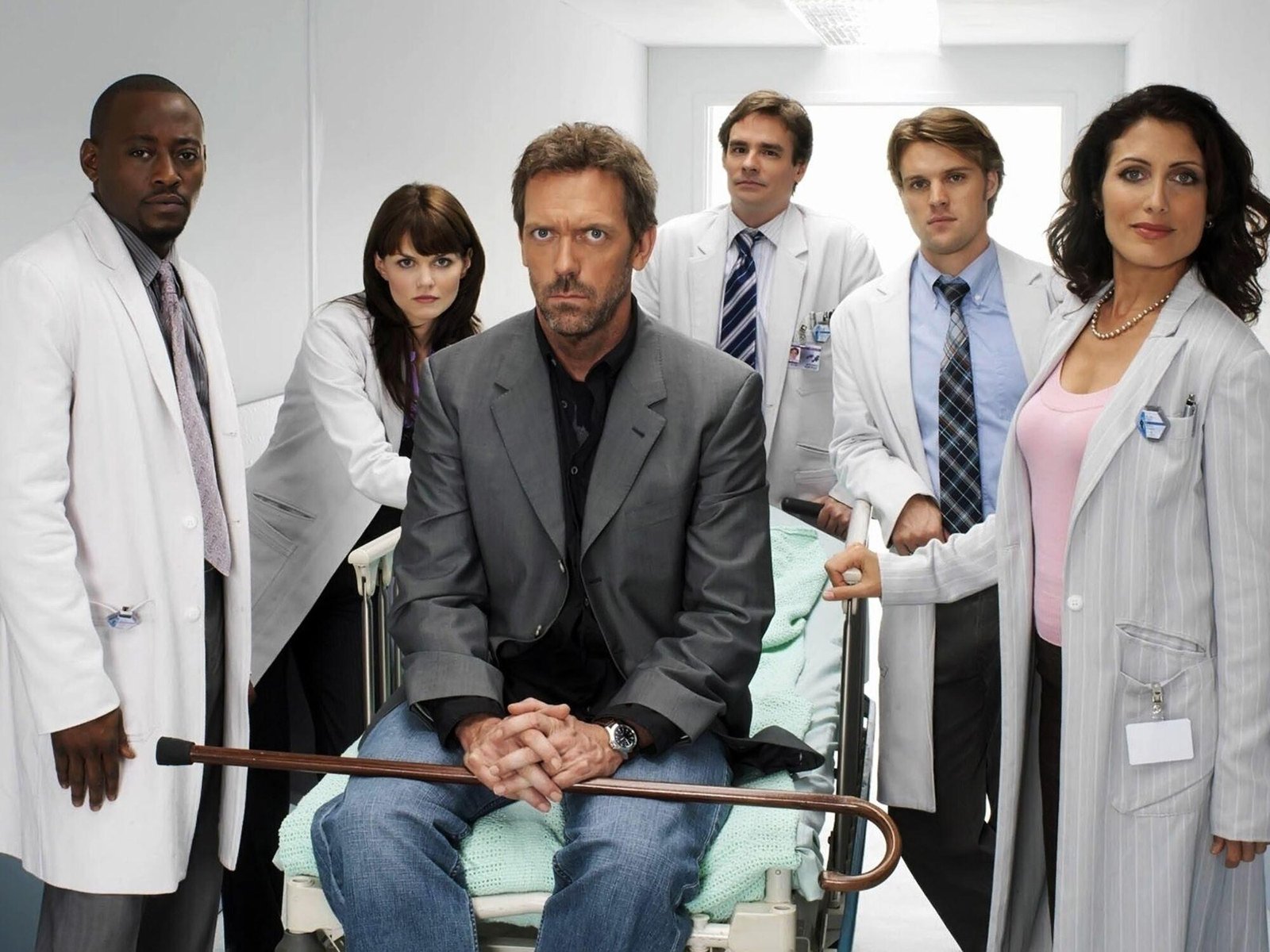House MD: The Medical Drama That Revolutionized Television
House MD is undoubtedly one of the most iconic and popular medical dramas on television. The show, which ran from 2004 to 2012, captivated audiences with its unique blend of witty humor, compelling drama, and brilliant storytelling. But what really set House MD apart from other medical dramas was its revolutionary approach to television. In this article, we’ll take a closer look at how House MD pushed the boundaries of TV and changed the game for medical dramas.
House MD is undoubtedly one of the most iconic and popular medical dramas on television. The show, which ran from 2004 to 2012, captivated audiences with its unique blend of witty humor, compelling drama, and brilliant storytelling. But what really set House MD apart from other medical dramas was its revolutionary approach to television. In this article, we’ll take a closer look at how House MD pushed the boundaries of TV and changed the game for medical dramas.

Introduction to the show and its impact on television
House MD, the critically acclaimed medical drama series, revolutionized television in many ways. The show, which premiered in 2004, introduced a new style of storytelling that was a departure from traditional medical dramas. It had a compelling central character in Dr. Gregory House, played brilliantly by Hugh Laurie, who was both flawed and genius. The show also used humor and wit to deal with serious medical issues, making it a refreshing change from the usual solemn tone of medical dramas. The impact of House MD on television was significant, inspiring other shows to adopt a similar style of storytelling and character development.
The unique and complex character of Gregory House
Gregory House, the protagonist of the hit medical drama series House MD, is a unique and complex character. He is a brilliant, yet arrogant, diagnostician with a dry sense of humor and a severe addiction to painkillers. Despite his flaws, House‘s unconventional methods and unorthodox approach to medicine revolutionized the way medical dramas were portrayed on TV. Audiences were captivated by his wit, sarcasm, and unconventional diagnostic methods. House‘s character challenged conventional beliefs and the medical establishment in a way that was not seen before on TV. His character will always be remembered as one of the greatest and most complex characters in television history.
The use of medical mysteries to drive the plot
House MD revolutionized TV by using medical mysteries to drive the plot. The show’s unique concept of a brilliant yet flawed doctor solving complex medical cases kept the audience on the edge of their seats. Moreover, the show’s use of active voice in storytelling and its focus on good SEO practices made it appealing to a wider audience. The witty and sarcastic humor of the protagonist, Dr. House, added a fun twist to the otherwise intense medical drama. House MD remains an iconic TV show that set a new standard for medical dramas and captivated audiences for eight seasons.

The incorporation of humor in a dramatic setting
House MD revolutionized TV by incorporating humor in a dramatic setting. The show’s main character, Dr. Gregory House, portrayed by Hugh Laurie, was known for his witty remarks and sarcastic sense of humor. The show’s writers skillfully blended humor and drama, creating a unique viewing experience. By using humor, House MD was able to lighten the mood and provide relief from the intensity of the medical cases. The incorporation of humor in a dramatic setting is a powerful tool that can enhance the overall impact of a show, and House MD did it perfectly.
The exploration of ethical and moral dilemmas in medicine
In the critically acclaimed TV series, House MD, the exploration of ethical and moral dilemmas in medicine is a recurring theme. The show’s protagonist, Dr. Gregory House, is known for bending the rules and making controversial decisions in his approach to medical cases. This raises questions about the moral and ethical implications of his actions. House’s character challenges the traditional image of the noble doctor and instead presents a flawed, complex individual who is willing to do whatever it takes to save his patients. Through House MD, audiences are forced to confront the difficult decisions that medical professionals face every day and the consequences of their actions.
The representation of addiction and mental health
House MD was not only remarkable for its witty script, engaging plotlines, and central character’s memorable personality, but for its accurate and sensitive portrayal of addiction and mental health issues. The show presented addiction and mental health as complex, multifaceted issues that affect people from all walks of life, and it did so in a way that was both realistic and respectful. Thanks to House MD, viewers gained a greater understanding of addiction and mental illness and were able to see the devastating effect that these conditions can have on those who suffer from them. The show revolutionized TV by treating these topics with the seriousness and care they deserve.

The diverse and talented cast of characters
One of the reasons why “House MD” revolutionized TV was its diverse and talented cast of characters. Led by the brilliant Hugh Laurie as the titular character, the show featured a multicultural ensemble that added depth, intrigue, and humor to the intriguing medical drama. From Omar Epps’ tough and pragmatic Dr. Foreman to Lisa Edelstein‘s sharp and ambitious Dr. Cuddy, every member of the cast brought their own unique flair to the show. Even the supporting characters like Robert Sean Leonard‘s Dr. Wilson and Kal Penn’s Dr. Kutner shone in their roles, making “House MD” a true ensemble masterpiece.
The influence of House MD on medical dramas and television as a whole
House MD was a groundbreaking television series that revolutionized the way medical dramas were portrayed on screen. The show’s unique approach to storytelling, combined with its charismatic lead character, Dr. Gregory House (played by Hugh Laurie), made it a hit with audiences around the world. The influence of House MD can be seen in the many medical dramas that have followed in its wake, such as Grey’s Anatomy and The Good Doctor. The show’s impact on television as a whole cannot be overstated, and it remains a beloved classic for fans of the genre.
The enduring legacy of the show and its continued popularity
The enduring legacy of House MD lies in its ability to revolutionize television with its unique premise and the captivating performance of Hugh Laurie as Dr. Gregory House. The show’s popularity remains strong even after years of its last episode airing. Fans continue to revisit the show’s thought-provoking storylines, the witty dialogue, and the incredible performances that have become iconic in the realm of TV dramas. House MD has set the standard for medical dramas, and its influence can be seen in many other shows that have followed in its footsteps. The enduring legacy of House MD is a testament to the show’s ability to capture the hearts of its viewers and leave a lasting impression on the TV landscape.
Conclusion on the impact and significance of House MD in the history of television
In conclusion, House MD is a groundbreaking television series that has revolutionized the industry. The show’s impact and significance have been enormous, from its complex and flawed characters, its unique storytelling style, and its emphasis on medical mysteries. House MD has redefined the genre of medical dramas and set a new standard for television. It has also launched the careers of many talented actors and writers. The show’s influence can still be felt today, as it continues to inspire new shows and attract new fans. Overall, House MD will always be remembered as a true game-changer in the history of television.
For more information about House MD revolutionized TV, including movie details, cast information, etc..
check out the filmaffinity page.



